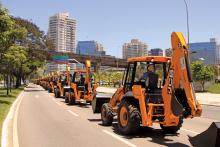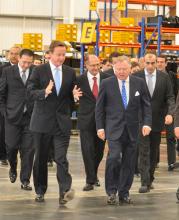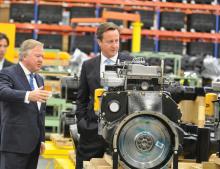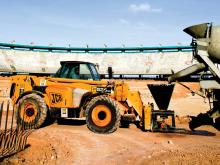JCB has won one of the biggest single tenders in its history with an order for more than 1,000 machines worth over US$96.4million from the Brazilian Government. The UK-headquartered company beat off competition from other major global manufacturers to secure the deal for the fleet of backhoe loaders, which will be used to improve the road infrastructure in the country. The first 114 of the 1,016 backhoes have now been delivered and the keys to one of the first machines handed over by Brazilian President Dil
The UK-headquartered company beat off competition from other major global manufacturers to secure the deal for the fleet of backhoe loaders, which will be used to improve the road infrastructure in the country. The first 114 of the 1,016 backhoes have now been delivered and the keys to one of the first machines handed over by Brazilian President Dilma Rousseff to Cleri Camilotti, the Mayor of the city of Três Passos from the State of Rio Grande do Sul.
The remainder of the 3C backhoes - all of which will be manufactured at JCB’s factory in Sao Paulo, Brazil - will be delivered by the end of June. The machines are being bought by the Brazilian Federal Government for use in more than 1,000 municipalities across the country with populations over 50,000 people. They will be deployed to improve and open up thousands of miles of secondary roads in communities heavily dependent on farming, ensuring food gets to its final market much quicker.
A third of all farms in Brazil are family enterprises in remote areas of the country where the road network needs to be upgraded and the purchase of the machines is part of a major federal government growth initiative. In total Brazil has more than 400,000 family farms.
Carlos Hernandez, managing director of JCB Brazil, said: “These JCB machines will play a big role in improving the infrastructure nationwide and ultimately ensure produce from family farms gets to its destination quickly.”
Under the terms of the tender, JCB Brazil is also providing in-depth training on the machines for operators across the country, which has a population of more than 180 million people.








